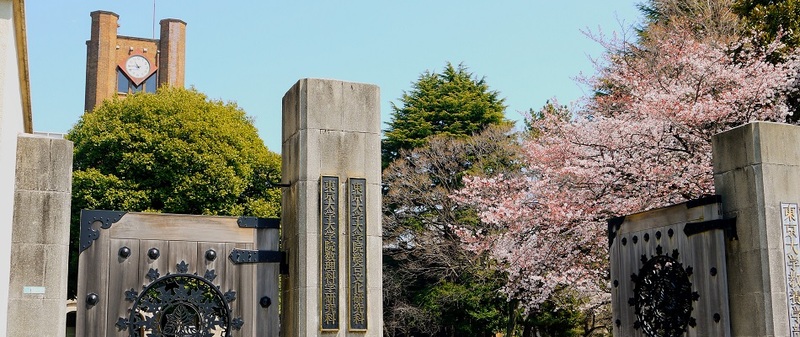What are the clubs and circles out there?
Overview of the types of Clubs and Circles
Culture
- Business and entrepreneurship related organizations
- Law and political science
- International exchange and cross-national communication related organizations
- Social problem-solving organizations (gender, environment, regional disparity, etc.)
- Humanities
- Event planning
- Career and college life
- Debate and academic competition
- Natural sciences
- Design programming
- Media
- Academic related or seminars organized outside of classroom
- Reginal support
- Circles related to hobbies, such as dancing, photography, art, etc.
Sports
- Sports clubs
- Sports circles
Music
- Music circles
- Orchestra and music clubs
Difference between Clubs and Circles
For those who are wondering why the confusing term “circles” is used, here is the answer! “Circles” (サークル) and “clubs” (部活) have very different meanings in terms of extracurricular activities groups in Japanese universities. “Circle” refers to groups whose activities are more interest-based and laid-back. It is usually not mandatory to attend all meetings or events, so to what extent you want to get involved in their activities all depends on you. The point is to have fun!
On the other hand, “club” refers to groups – mostly sports-related and a few music clubs – that, besides having fun, aim for winning in competitions against other universities. The training sessions are held multiple times a week and their intensity is no joke! For those who want to do some real sports, clubs are recommended because the group cohesion is much stronger than circles, and you can also experience the unique club culture in Japan.
Difference between UTokyo Student Only Circles and Intercollegiate Circles
As you might have already noticed in the introduction page of some circles, they say they are インカレ circles. The term インカレ refers to “intercollegiate circles,” meaning that this circle is composed of not only students from UTokyo but also other universities. Joining intercollegiate circles is a great opportunity to know more about other universities in Tokyo and make some friends outside the UTokyo community. The atmosphere of intercollegiate circles might differ a lot depending on the circle itself, so be sure to get to know the circle well before joining them. By the way, UTokyo students can as well join the intercollegiate circles in other universities!
How to obtain information regarding clubs and circles?
One of the most important steps in joining a club or circle is to research about the club or circle’s activities and find out what kind of stuff you want to partake in at university. There are several ways to find out more information about the clubs and circles that interest you and that you might want to join. Here is a summary of the major forms of information that are available regarding clubs and circles.
1. Digital Sources
a. UT-BASE: UT-BASE is an information aggregation website run by UTokyo students which aims to provide information relating to classes, departments, seminars, campus facilities and circles all at one place. UT-BASE has compiled a list of all ‘majime-kei’ (meaning serious minded - mainly cultural or academic) circles and classified them according to their type (such as finance, debate, career, etc…), which makes it quite easy to access.
Although most of the website is in Japanese, UT-BASE has recently started to publish information in English as well, so you might want to check that out! UT-BASE also plans to publish English articles about circles which are welcoming towards international students, so keep an eye out for that too!
b. The University of Tokyo Orientation Committee Website: This is the official website of the University of Tokyo Orientation Committee, the student body in charge of organizing the spring and autumn circle orientations (or shinkan in Japanese). This website has a list of not just circles but also all the clubs at UTokyo, and the information is
available in both English and Japanese.
c. Official circle/club websites: A lot of clubs have their own official websites, the links to which are usually available from their social media accounts, or from websites like UT-BASE. These websites are the most authentic source of information when it comes to the activities of the circle, as well as for information about how to join them.
d. Official circle/club social media accounts: Clubs and circles usually run their own social media accounts on a variety of platforms, mainly onthe main of which being Twitter. Through these accounts they releaseconvey information such as about their shinkan schedule, the process of joining and so on. The links to their social media accounts are all compiled on the UT-BASE and University of Tokyo Circle Orientation websites, so be sure to check those out first!
Another important tool used for communication is the official Line account of clubs and circles. By adding these Line accounts to your friends list, you can receive notifications about schedules, important links, and so on, as well as ask queries directly to the circle/club members. These accounts are different from personal Line accounts, as the responses from the official accounts are usually automated and the account itself is only active during the spring or autumn orientations, but they can still be used for communication through text during the orientation period.
2. In-Person Events
a. Shinkan (Circle Orientations): Shinkan is the period of Circle Orientations during which clubs and circles hold several events to attract new members and actively recruit. There are mainly two periods of shinkan: Spring and Autumn. Spring Orientation (haru-shinkan) takes place mainly during April-May, and is the main event with the tento-retsu (row of circle/club tents) and so on during which spring entry students (bulk of UTokyo undergraduate students) decide which clubs and circles they want to join. Autumn Orientation (aki-shinkan) takes place during September-October, and although slightly smaller in scale than spring, is a great opportunity for September entry students (such as PEAK students) to explore circles. During these orientation periods, clubs and circles hold a variety of events such as:
i. Information Sessions (setsumeikais): Clubs and circles usually hold setsumeikais, which are briefings in which they introduce their activities and other basic information through presentations, followed by a question and answer session and a chance to speak with the club members. Setsumeikais are held individually, or in a group of similar circles, and are a great way to not only get to know about the club/circle, but also to get a taste of the atmosphere there by interacting with the members.
ii. Trial Sessions (taikenkais): These are usually held by the athletic clubs and circles. Usually one is called to the practice ground of the clubs/circles, and are allowed to actually experience the activities, such as horse riding and martial arts. They also serve as screening sessions for the clubs/circles, and are a great way to understand what the activities entail and if you are cut out for it!
b. School Festivals (Gogatsusai and Komabasai): UTokyo has two main school festivals- Gogatsusai (May Festival) and Komabasai (Komaba Festival in November). During these festivals, students put up stalls of various kinds such as food stalls, toy stalls and so on. During these school festivals, clubs and circles also put up a variety of stalls and hold events showcasing their activities such as band performances and magic shows, so they are a great opportunity to get to know about clubs and circles as well! Especially Komabasai, which is a great opportunity for September entry students to experience the atmosphere at Komaba.
What do you need to pay attention to when choosing a circle/club?
Choosing a circle/club is not that simple! Circles/Clubs doing the same activities may have a big difference in atmosphere. Next, we will share with you some points that you need to pay attention to when choosing a circle/club. We believe that, by checking these points, you can build a more comprehensive understanding of each circle/club.
Member Requirement
Different circles/clubs have different member requirements. Some circles/clubs have requirements for grades, for example, some circles only allow students in the first grade to participate; some circles have language proficiency requirements (e.g. only students who have the ability to do discussion in Japanese can join the circle). Please make sure that you understand the member requirements of each circle/club before applying for a club.
UT-BASE is also producing the English version of club introduction for some clubs which sincerely welcome international students. Please click the link below to view!Information about Ccircle Mmembers
Before joining a circle/club, it isyou'd better to know the number of members and the grade distribution in advance.
The scale of clubs is different from each other. Some clubs may have more than 100 people, and some clubs may only have about 20 people. Regarding the grade distribution in clubs, most clubs are dominated by students in the first grade and second grade, but there are still some clubs where third-grade and fourth-grade students, even graduate students, are relatively active. Knowing the grade distribution of the club members can also help you better imagine the atmosphere of the club. For example, in a club where all members are in the same grade as you, there is no need for you to speak Keigo(Japanese honorific speech). But you need to speak Keigo(Japanese honorific speech) when talking with seniors. In addition, some clubs have the tradition that seniors pay for the meal when having meals with juniors together. We call this behavior Ogori in Japanese. In your first year in the club, you may not need to pay for the meal, but in your second year in the club, you may need to get the check for the meal.Fee for an Academic Year (YEN)
The next thing you need to focus on is the fee for an academic year. Most clubs need to pay an entrance fee, ranging from a few hundred to a few thousand yen. Of course, there are circles/clubs that don’t need to pay the entrance fee. However, it should be noted here that after paying the entrance fee, it is possible that some circles/clubs collect extra money when holding events. For example, some dance clubs charge clothing fees, venue rental fees when they hold public performances. So here comes the point: don’t just view the entrance fee of the club, be sure to learn from the seniors about the fee you will spend in the club for the whole year!
Active Dates
There are some clubs that will carry out activities throughout the year. Some sport clubs require members to practice in the morning as well as in the evening more than twice a week. There are also some clubs which are not always busy. For example, some clubs prepare for a large-scale event in a year. The month before the big event will be busy, and other times will be comparatively leisurely. Before entering the club, make sure that you understand the active dates and inactive dates of club activities, and arrange your schedule(e.g. time to return to your home country)reasonably.
Active Locations
Depending on the different composition of the club members, the active locations for club activities are also different. Some clubs’ activities are mainly held on the Komaba campus, some clubs’ activities are mainly held on the Hongo campus, and other clubs may take place off-campus for their activities. Knowing the active location of the club will also help you calculate the commuting time for participating in club activities.
SNS and Website for Circle
Most clubs have their own official SNS accounts, such as Twitter, Instagram, and LINE. You can get a better understanding through the posts and the photos uploaded by those official SNS accounts. If you don’t have a Twitter, Instagram or LINE account yet, we strongly recommend that you register one, because you can collect more useful information about club activities by searching on the SNS. Some clubs also have their own official websites. Please take a look at it!
How to Jjoin
When you decide which club you want to join, the first thing you need to pay attention to is how to join the club. Most clubs will publish the method of joining the club on SNS. Some clubs have selections(the main approaches are material review and interview), and some clubs do not. You can join the club just by sending an email to the specified mailbox, or filling in a simple google form. In addition, you also need to notice the deadline for the application of the club. Some clubs only accept applications once a year. If you miss the application period, you may not be able to join the club.










